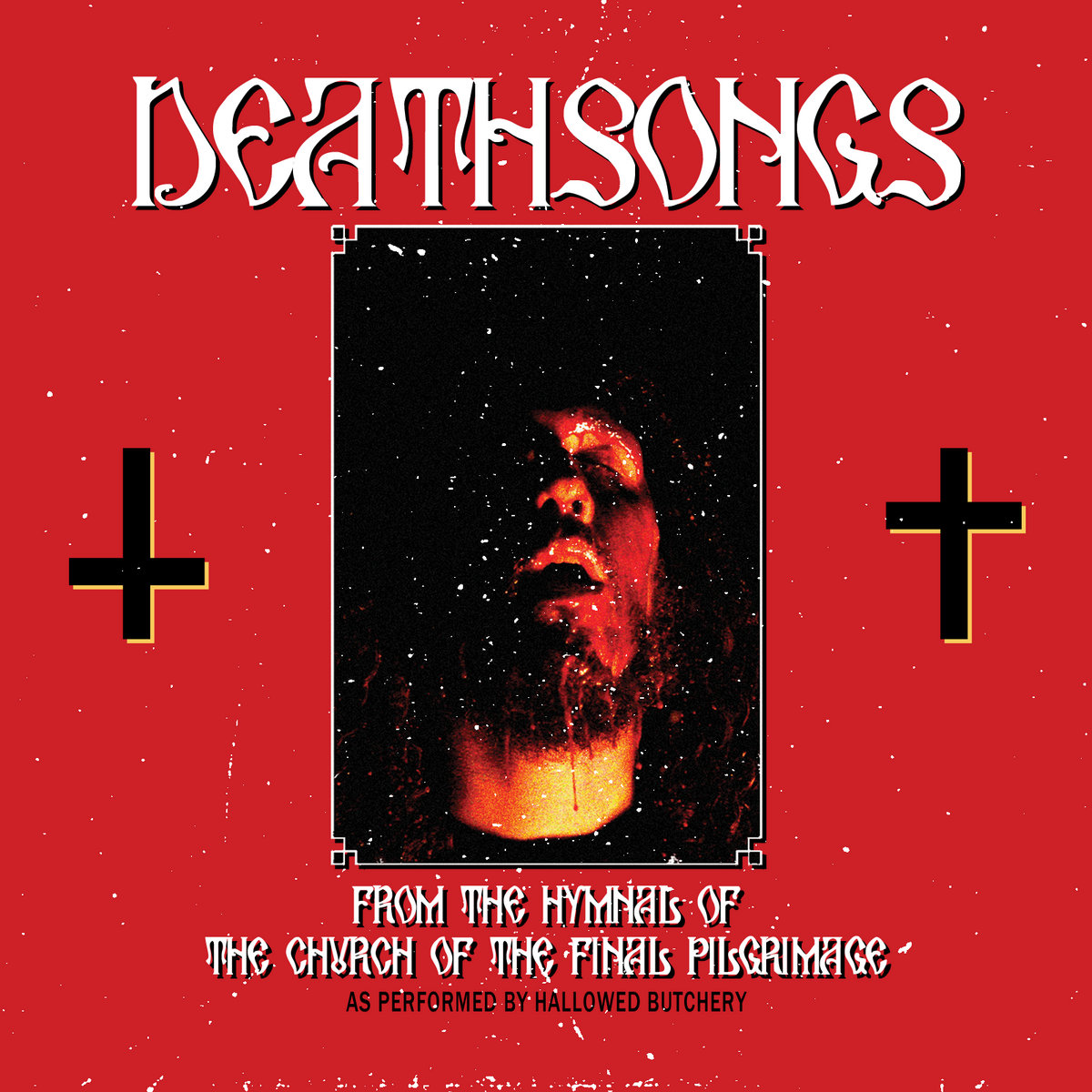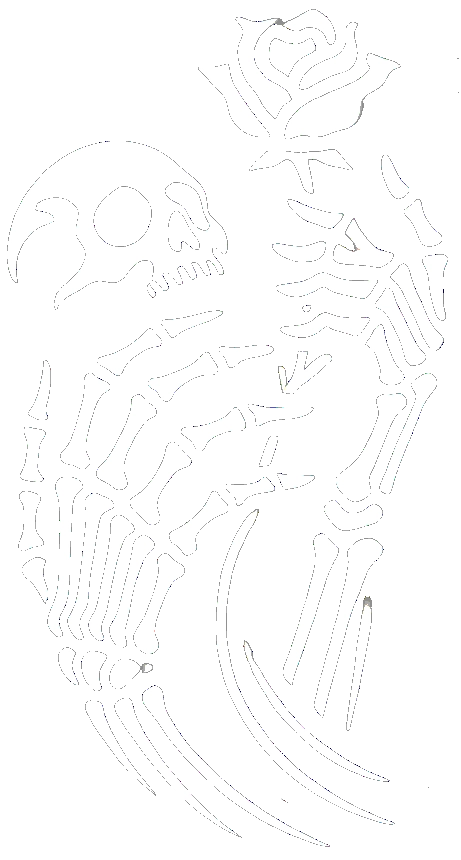With Deathsongs from the Hymnal of the Church of the Final Pilgrimage, Hallowed Butchery made an impressive return after years of anticipation for a follow-up album to Funeral Rites For The Living. After overcoming writer’s block and depression, Ryan Scott Fairfield crafted a monumental album. Deathsongs from the Hymnal of the Church of the Final Pilgrimage emerged with expansive creative freedom as a future gem in a self-contained musical experience, far removed from any genre conventions. Born from a cult experience, the album can only be described through vague analogies. As a funeral-extended Death Doom in extravagant crossover with elements of Folk/Neofolk and Post-Industrial, Deathsongs… makes a strong statement about the idea of avant/industrial/doom hybrids that projects like Corrections House or Author and Punisher—following in the footsteps of Godflesh and Swans—should take note of.
Between elegiac, Neurot Recordings-like folk breathing pauses and the crushing Funeral Doom and Post-Industrial darkness, Fairfield celebrates his experience, while simultaneously venerating death as the only true sacrament of the real and existing Church of the Final Pilgrimage.
The Concept
For the sake of his research, he temporarily joined the sect, living with the group for two weeks, using their holy scripture The Consecrated Tenets of The Church of the Final Pilgrimage, which accompanies the album, as the foundation for his own reflections on being human in a world where death seems not only to be the last, but also the only certain constant of life. Nietzsche wrote that death is “not the enemy of life at all, but the means by which the meaning of life is revealed.” (Friedrich Nietzsche: Fragments 1875-1879, Vol. II, p. 144) Essentially, the Church, its leader Jonathan Curless, and thus the album, follow this thought with a desire for naturalness in a fatalistic consequence leading to the end. Fairfield wrote his lyrics in reference to the scripture, rejecting medicine as a futile life extension and condemning the “natural” death as an ideal of life corrupted by the modern world. This idea resonates with a concept from Foucault, where the former sovereign right to allow life has been replaced by the power to “make life or push it into death.” (Michel Foucault: The Will to Knowledge) The question of when a person is truly dead is now defined not by religious belief, but by a scientific standard. Since God, paradise, and eternal damnation have lost their influence, humanity loses its briefly acquired subjective responsibility to a medicine-based, imperfect construct to which the individual submits. This existential dilemma echoes throughout the album. However, Foucault would likely never have entertained the idea of following this realization with a death cult that regresses into divine determinism. Likewise, Fairfield ultimately rejects the sect’s celebration of death, the withdrawal from the modern world, and the return to a higher entity as an answer.
The Execution
The massive bass riffs in “Ever Gloom” roar with anger and confusion, pushing the sound to distortion. The synthesizers and drum machine beats in “The Altruist” offer an image of the cybernetic society to which the Church of the Final Pilgrimage seeks to oppose its necrophilic counter-concept. But Fairfield was not looking for cult answers—perhaps, and I would personally prefer this idea—there are no answers at all.
In the end, Deathsongs from the Hymnal of the Church of the Final Pilgrimage works best as a search without the expectation of answers to the questions of being and the meaning of life and death. It is like a Gonzo-journalistic account of the sect days, including the lingering uncertainties of one’s existence and the possibilities for meaningful life creation despite and because of the only true constant—death. Accordingly, the concluding apocalyptic folk piece “On the Altar” feels retrospective, with a Death-in-June-esque fanfare from the studio, dedicated to the memory of Thomas Reitmayer, a personality of the (Austrian) punk scene who passed away far too early.
The Conclusion
Deathsongs from the Hymnal of the Church of the Final Pilgrimage is an impressively profound work that needs no conventions. Ryan Scott Fairfield succeeds in creating a musical journey that offers an exploration of death and existence, a reflective critique of modern societal structures, and a deeply personal emotional perspective. Through the fusion of Funeral Doom, Folk, Neofolk, and Post-Industrial, Fairfield creates a unique soundscape that musically underscores the themes of the album. Deathsongs… does not offer answers to the big questions but is a testament to the open search of an uncertain, nihilistically shaped individual. What remains is nothing less than a mirror of the confused, postmodern self seeking stability and direction in one of the most impressive albums of recent years.

